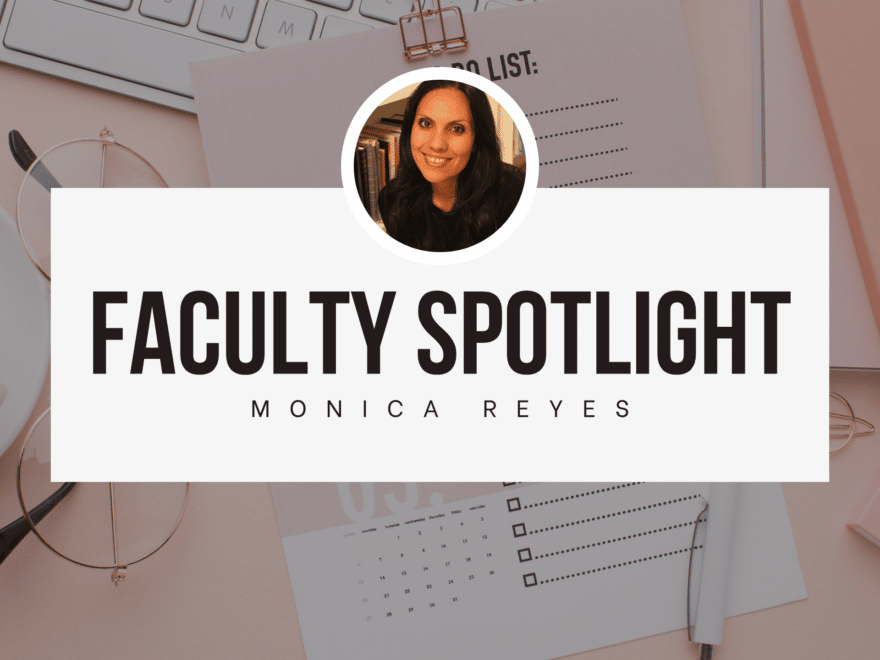Although they spend significant time working with their students, the professors in the WRD department are still scholars at heart–often working on their own projects in addition to teaching. Dr. Monica Reyes is no exception. Her courses like Multicultural Rhetorics and Feminist Rhetorics encourage students to think outside the box for their own personal scholarship. Let’s check in with her to see what she’s been up to.
What are you working on right now?
I am currently working on my single-authored book with Routledge. My book, Rhetoric and Storytelling within the U.S. Asylum Process: Shelter Rhetorics, examines the U.S. requirement for people seeking asylum to frequently tell their stories of persecution clearly and consistently at various times beginning with a “credible fear” interview. Not only does storytelling begin the official asylum process, [but] it also opens opportunities for work and education along a pathway to resettlement in the U.S.
However, for people seeking asylum, composing these narratives is challenging because of cultural, linguistic, and economic barriers. For example, many applicants cannot afford the cost of a lawyer to help them narrate their experiences, and without a lawyer, the odds of obtaining asylum are cut in half. Additionally, applicants must compose these narratives while erratic changes to the U.S. asylum policy are altering legal grounds for asylum. Specifically, Shelter Rhetorics describes my research within an emergency shelter for displaced people along the U.S.-Mexico border, where I investigated how people who seek asylum and those who work with them at the shelter navigate the rhetorical pressures of having to write compelling asylum narratives.
Do you have any research trips planned?
I have yet to plan any trips at the moment; however, I’m brainstorming right now about how I can work with a local organization to help offer writing support to displaced people. This would be after I submit my book in 2023. There may be some wonderful research opportunities in the Chicago area to see how writing support can offer life-changing opportunities for displaced communities.
What advice do you have for students/alumni looking to continue their research?
I’m a broken record on this one, but I always tell graduate students to design their own graduate program! What I mean is, always be on the lookout for resources, support, networking, funding, etc. that can help you accomplish what you dream to do, even if it isn’t written out or explicitly offered in a graduate program.
For example, students can network with faculty from other departments who are doing work that can help inform students’ research plans and goals. Scholarship is more interdisciplinary than ever. My students are asking such thoughtful interdisciplinary questions that require expertise from various fields, especially social justice, critical ethnic studies, border studies, and gender studies. The more networked students are, the more they are setting themselves up for amazing opportunities to apply their rhetorical knowledge in real-world contexts.
